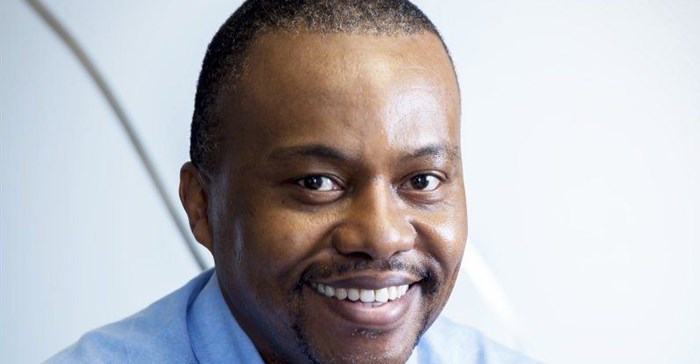The Chamber of Mines has taken a stance against corruption and bad government in its decision on how to deal with Mineral Resources Minister Mosebenzi Zwane, but realises it needs to "eyeball and wrestle" all stakeholders around a table to thrash out good mining policies and regulations.

Mxolisi Mgojo, chairman of the Chamber of Mines. Photo: MiningMx
Speaking at the Jo'burg Indaba mining conference, chamber president Mxolisi Mgojo said the chamber was not waiting for the outcome of the two court challenges it had mounted against Zwane and his department around the Mining Charter, and was seriously working on what a good charter would look like.
The enormously damaging changes to the Mining Charter that Zwane introduced in June, along with pending amendments to the Mineral and Petroleum Resources Development Act, which have been a work in progress for five years, coupled with rampant corruption in the government, political uncertainty, and the difficulty of doing business in SA, have made the country a no-go zone for some investors.
Confirming anecdotal stories from executives travelling abroad to raise funds, Jamie Horvat, the manager of M&G Global Basics Fund in London, was blunt when asked during a panel discussion about where SA fitted into the fund's investment focus.
"Unfortunately SA is pretty much a no-go zone for us," Horvat said, pointing out equity was the highest risk capital an investor could put into a company.
"When we see governments that don't have long-term sound economic plans, a fair and just regulatory environment, with protection of property rights, it's a big concern for us," Norvat said.
The chamber, whose members account for 90% of SA's annual mineral output, has defended its boycott of the conference gala dinner where Zwane spoke, with CE Roger Baxter saying the chamber's members had lost all confidence in Zwane, who had unresolved corruption allegations hanging over him and dubious dealings linked to the controversial Gupta family, who have used their connections to President Jacob Zuma to extract enormous financial benefit from state-owned enterprises under dubious circumstances.
Mgojo said the chamber was involved in wide-ranging talks with a variety of parties despite the court process to seek a declaratory order about the continuing benefits from empowerment transactions and for a judicial review of the third iteration of the Mining Charter, which Zwane has suspended since gazetting it in mid-June.
If the judicial review in mid-December is decided in the chamber's favour, and the third charter is set aside, then the department and the chamber are likely to be forced to revisit the drafting of the charter, with the chamber pushing for more intensive negotiations around the document, unlike in the run-up to the release of the prevailing version.
To prepare for that prospect, the chamber was aggressively working on an alternative version, drawing on former chamber leadership involved in the drafting of the first two charters. It was also speaking to the ANC, unions, civil society groups and big government-owned financial institutions to come up with a version that would be broadly acceptable, Mgojo said.
"We have a court process going on, but at the end of the day there is no way we can come up with a solution for this country in the mining sector where we do not sit around a table, and face each other, eyeball each other, wrestle with each other, until we find a solution," he said.
"While those issues are taking place in court we have to find one another and start a conversation. We are doing exactly that," he said. "Real consultation and partnerships are the key to a sensible transformation journey and outcomes."
Jim Rutherford, a nonexecutive director at Anglo American, said the empowerment debate in SA had been distorted into ownership and control of the mining sector, and the government was clearly misunderstanding how modern capital markets worked.
He warned that governments interfered with the mining sector with "misguided mining policies" and reduced companies' profitability, directly affecting pension funds of the general populace.
DA leader Mmusi Maimane said on Wednesday the department's changes to regulations and policies were aimed at changing control of the mining sector from a white elite to a black elite, without any benefit for broader society.
The point of speaking to mining veterans like Bobby Godsell, Sipho Nkosi, Barry Davison and Con Fauconnier was to find out how the first charter was negotiated in 2002 and the second version in 2010, and to discover what was left unresolved that had evolved into problems the industry was now grappling with and why the department changed the charter the way it had, leading to the deeply damaging impasse between the two sides.





































